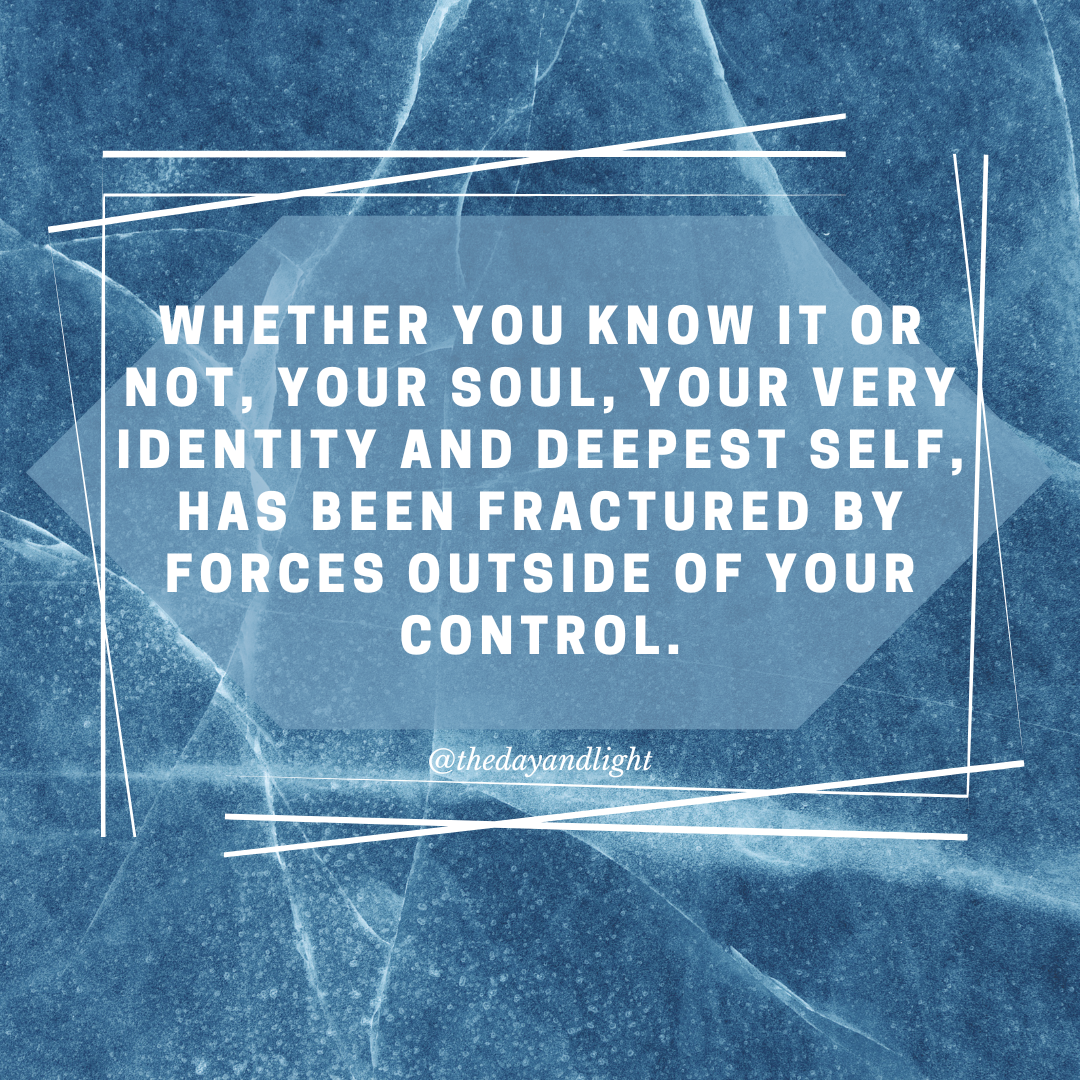
Upside Down?
What if “upside down” was really a bit of a misnomer? What if it’s our world and our kingdoms that are all a bit upside down? If everything I’m saying here is true, and I really hope that it is, then our way of being is the one that’s all out of whack. If we broke the world by trusting ourselves instead of God and we have the right to restore it as heirs of the Kingdom of Christ, then we’re heirs to a Kingdom greater than we ever imagined and our journey to get there is actually about re-orienting our lives so that we will be fit citizens.

I don’t know what you’re talking about
This is it for Jesus’ disciples. They said that they would die with him. They said they’d never deny him. But I don’t think they saw this coming. I don’t think they believed that the religious leaders would have the last say with Jesus. They’d seen too much. They not only knew, but really believed that they were following the Son of God around. How could he be arrested and convicted on false charges in a questionable courtroom? Much less, how could he be killed? The wages of sin is death, not the wages of righteousness. What was going on?!

Send Someone Else
I don’t know about you, but I find myself right here in this story. For context, Moses is out here in the wilderness because he ran away from Egypt as a young man after committing murder. He killed an Egyptian slave driver for mistreating an Israelite. He didn’t think that anyone saw, but they did. When he found out, he ran as far and as fast as he could and ended up in the wilderness for, he thought, the rest of his life.

Lesser Man
I can almost see her now, cowering, coming out from behind whoever was her shield. We don’t know her name, but we know that she, too, was at Jesus’ feet. She fell down at his feet and the language here indicates that she told him not only that she had touched him, but her whole, sad story. She told him how she had been suffering from bleeding that wouldn’t stop for twelve long years. She told him how she’d been ostracized by her entire family, community, and society in general for being “unclean”. She told him how the very people who were supposed to help and heal her, in this case doctors, had taken all her money and left her worse than she had been before (sound familiar?? I’m still looking straight at you Southern Baptists).
She sat at his feet and told Jesus the whole story and, even though there was an emergency situation going on, Jesus listened. He didn’t stop her. He listened and he told her, “your faith has saved you. Go in peace.”

Mercy, not Sacrifice
And the sooner that you realize that you can’t work or sacrifice your way into the Kingdom of God, the sooner you’ll realize how sick you are and how desperately you need a doctor to show you mercy. Then, you’ll go and do likewise.

Mystery
God is not a God of rules. God is not a God of “us vs. them”. He’s a God of mystery. He’s a God of belonging. He made a freaking platypus. And supernovas. And trees that flower in the springtime. He loves beauty and laughter and rainbows and sun on the leaves. He loves you and me and the guy down the street without a home. And he wants us all, every last one, to trust him, not the rules.

Kingdom of God
The Bible, and, thus, the Christian faith, is chock full of mystery and grey area. Again, this doesn’t mean that there is nothing solid or unshakable. It means that the solid and unshakable things are so solid and so unshakable that they support the mystery and the grey area. You can stand firm on the essentials and allow for varying degrees of uncertainty in all else. You can even change your mind.

They Saw God
The reason that you, that I, struggle to follow Jesus is that deep down we’re uncomfortable with the fact that he is in control, not us. We’re uncomfortable with the fact that, as C.S. Lewis says, he’s a little bit wild. However, I also need you to know that it’s not all our fault. Many of us have been a part of households and communities of faith whose theology wasn’t much more than a golden calf. We have been part of churches that looked less like the Kingdom of God and more like a whitewashed version of the late-20th century American dream. They deified individualism, adventure, and “finding God’s will for your life”, but they didn’t consider that the God who rescued Israel from slavery in Egypt is kinda wild. He sent swarms of locusts and turned a whole river into BLOOD. You can’t box him into any kind of dream that you came up with on your own.

Bits and Pieces
So often, at least in the Christian circles that I’ve run in, there’s this undercurrent of pressure and guilt to do more. We’re giving into the temptation to compare ourselves to others and figure out the “best” way to follow Jesus. Instead of asking him how he would like us to spend our lives, we’re just looking at the person we think is holiest or closest to God or whatever and doing more of what they’re doing. Nevermind that our lives, circumstances, resources, seasons, abilities, skills, and very bodies are different from theirs. We love a one-size-fits-all, silver-bullet approach to spirituality.

Power to the (wrong) people
One of the things I’ve been mulling over as I process the past eleven years is how power has been wielded in spiritual communities that I’ve been a part of. Sometimes, people are given power because they merit it either through experience, training, inherent skill, or a combination of these things. Other times, people are given power for their sheer charisma. These are the ones that you have to watch out for. They’re the ones who harmed me.

The Benefits
I think that, in an effort to make following Jesus more palatable, many well-meaning Bible teachers and evangelists focus on the “good things” that come with following Jesus and they fail to mention the devil, difficulty associated with being a Christian, and regular life pain and suffering that are sure to come, even to those who follow Jesus. It’s like a recruiter for a job telling you all about the benefits package, but leaving out the best part- your salary.

The Center
Say the person who taught you about Jesus turns out to be a complete fraud and so you, understandably, decide that everything they taught you is trash. It seems like a logical jump if you have characterized people and ideologies as either all good or all bad. But this doesn’t make sense when held up to the light of reality because, even if you discover that most of the ideologies that you once ascribed to turn out to not make sense of your life, world, or experience, that doesn’t mean that it’s all trash. Ideologies, just like people, are complex. It’s unfair to try to characterize the whole thing as good or bad just as it’s unfair to do that to people.

Cracks
My point is: fractures are everywhere, even when you can’t see them. They’re all different, they’re all painful, and they’re all caused by different forces with the same effect: destabilizing and weakening the thing they’ve fractured. Whether you know it or not, your soul, your very identity and deepest self, has been fractured by forces outside of your control.

Loyalty, pt. 3
Are you aware that you can hear, understand, and entertain ideas without them having to become part of your worldview? You can truly understand what someone else is saying and still disagree with them. You can imagine where they are coming from and why they drew the conclusions that they drew or made the decisions that they made without validating their position. It’s not dangerous to hear ideas and worldviews different from your own, it’s empathetic.

Loyalty, pt. 2
But, alas, we let our loyalties, just like all our other affections, run about unchecked, unrefined, unexamined and we harm ourselves and everyone around us in one way or another.

Loyalty, pt. 1
Deep down, we want our friends to be trustworthy, honest, authentic, and to stand by us no matter what. In a word, loyal. But before we can leave this conversation and move onto something different, I think we need to do the really important work of asking ourselves what we mean and don’t mean by “loyal”. What are the pitfalls? Where do our unrealistic expectations hide? And, are we even loyal ourselves? Can we, rationally, even expect this of others? What do we really want when we say we want a loyal friend?



